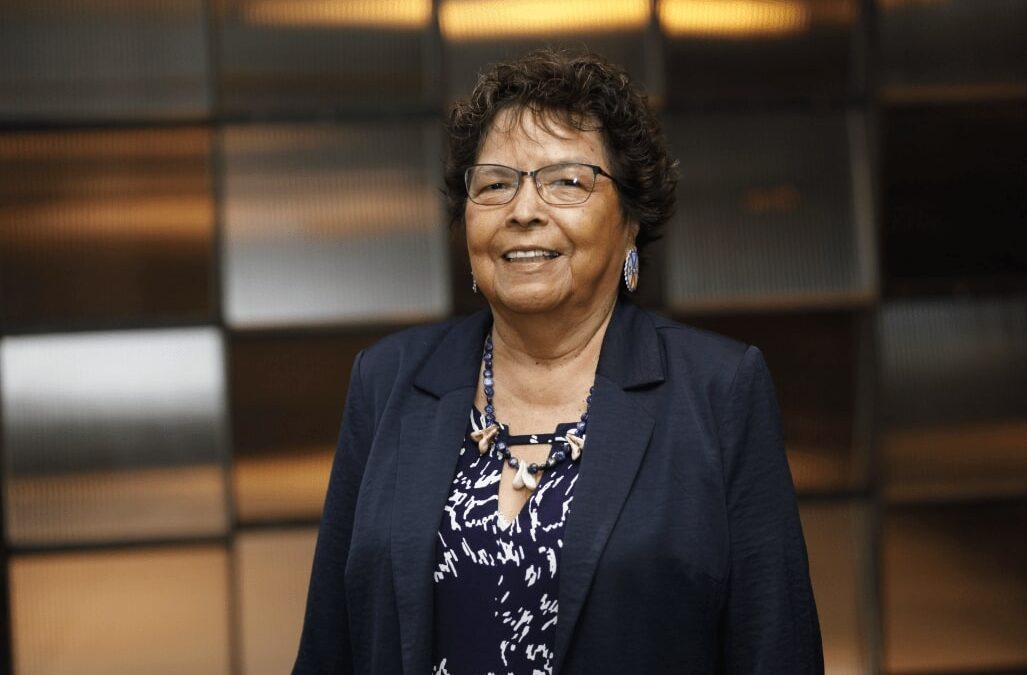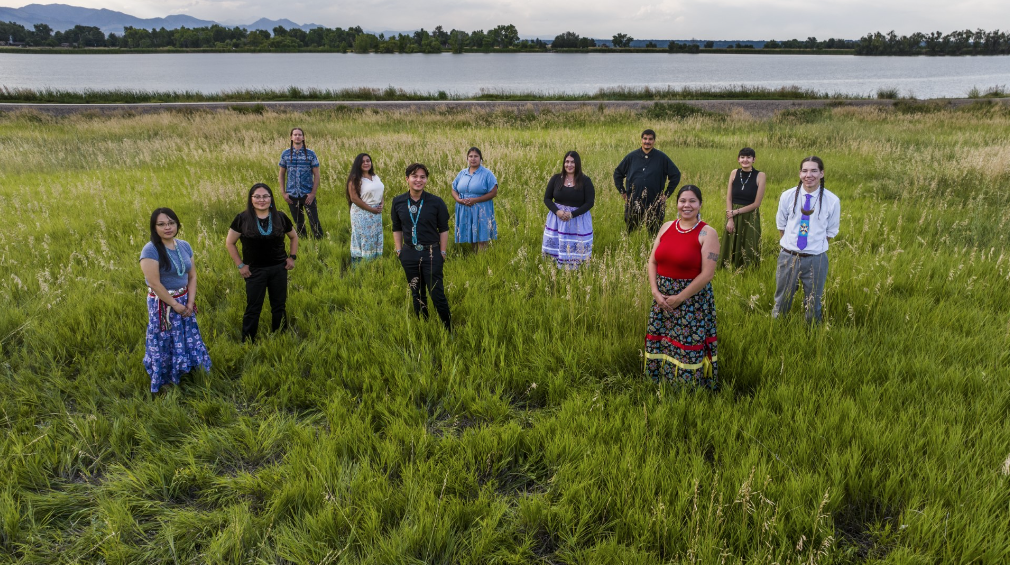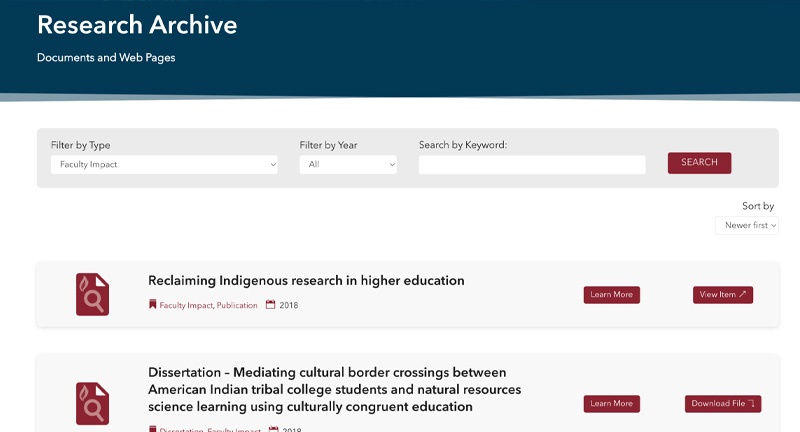I want to thank a reader of Money magazine who wrote that he was shocked by our ad campaign, “If I Stay on the Rez.” He noted “This ad does such a disservice it’s impossible for me to comprehend why you would encourage Indian youth to learn in their native language, whatever that may be. English is the language of this country, whether you like it or not. Business is conducted in English. And so is biology.” He went on to note that Indian youth should be taught their native tongues while they are growing up, but should study English while in college, and should be encouraged to leave the reservation.
Letters like this that help us understand the misconceptions people have about tribal colleges and the important work we have yet to do to educate the populace. Tribal colleges are institutions where students learn English, math, and computer science alongside their traditional languages, much like students study Russian, French, Spanish, or German in college. The difference, of course, is that native languages are not foreign languages, they are our own. When we study our languages we are not doing so as the children of immigrants searching for our roots or desiring to communicate with outsiders—we are celebrating our identities as indigenous people, and re-learning or studying in depth what was forbidden, suppressed, or taken from us.
Regardless of the reason one studies another language, studies show that people who grow up bilingual—no matter what the language—perform better on standardized academic tests, such as the ACT, SAT, LSAT, and GMAT. These same studies show that people who speak their own culture’s language perform better overall in academics.
Language has been a political issue worldwide. Since the beginning of humankind, language has been a tool of power. Language is a reflection of a dominant culture’s mores and beliefs, and law codifies it. But when people speak their own language along with a dominant language, monoglots sometimes feel threatened. This is why, of course, the U.S. government forbade Indian children from speaking their languages when they were shipped to boarding schools. It is also why many languages disappeared or went underground in Africa and South and Central America when European nations colonized those continents.
If language is power, imagine what studying one’s own language does for our Indian students. It empowers students, gives them pride in their culture, gives them a sense of past, present, and future. Our languages are the language of this country just as much as English is. Indian people negotiated treaties and forms of government that our country’s Constitution used as a model. Our language is stamped on the country, indelibly, in the names of states, rivers, and mountains: Connecticut, Mississippi, Niobrara. Our land is a living entity, and it whispers our language and breathes our spirit. This is what tribal colleges teach: how to proudly navigate the worlds around us and the languages of those worlds. We belong in the world of our ancestors every bit as much as we belong in the world of the present. Tribal colleges graduate doctors, lawyers, businesspeople, and scientists, who stay or return home to the reservation to make a better life for their people, and passing on the tradition of success. Yes, we are Americans, we are the first Americans, and we are proud of that and of our country. But this does not mean we are not proud of being citizens of other nations, too. Just like any American can hold dual citizenship with a country in Europe and speak more than one language, we can, and do, as well.
Our country is founded on the principles of diversity as espoused in the Confederacy of the Iroquois, as the French called the six nations of the Mohawks, Oneidas, Onondagas, Cayugas, Senecas, and Tuscaroras. This diversity is enshrined in our Constitution. Our tribal colleges, like the Constitution, celebrate that diversity, our cultural strengths, and our accomplishments. Like language, diversity brings power and strength. It is our country’s foundation, and it is its future.









